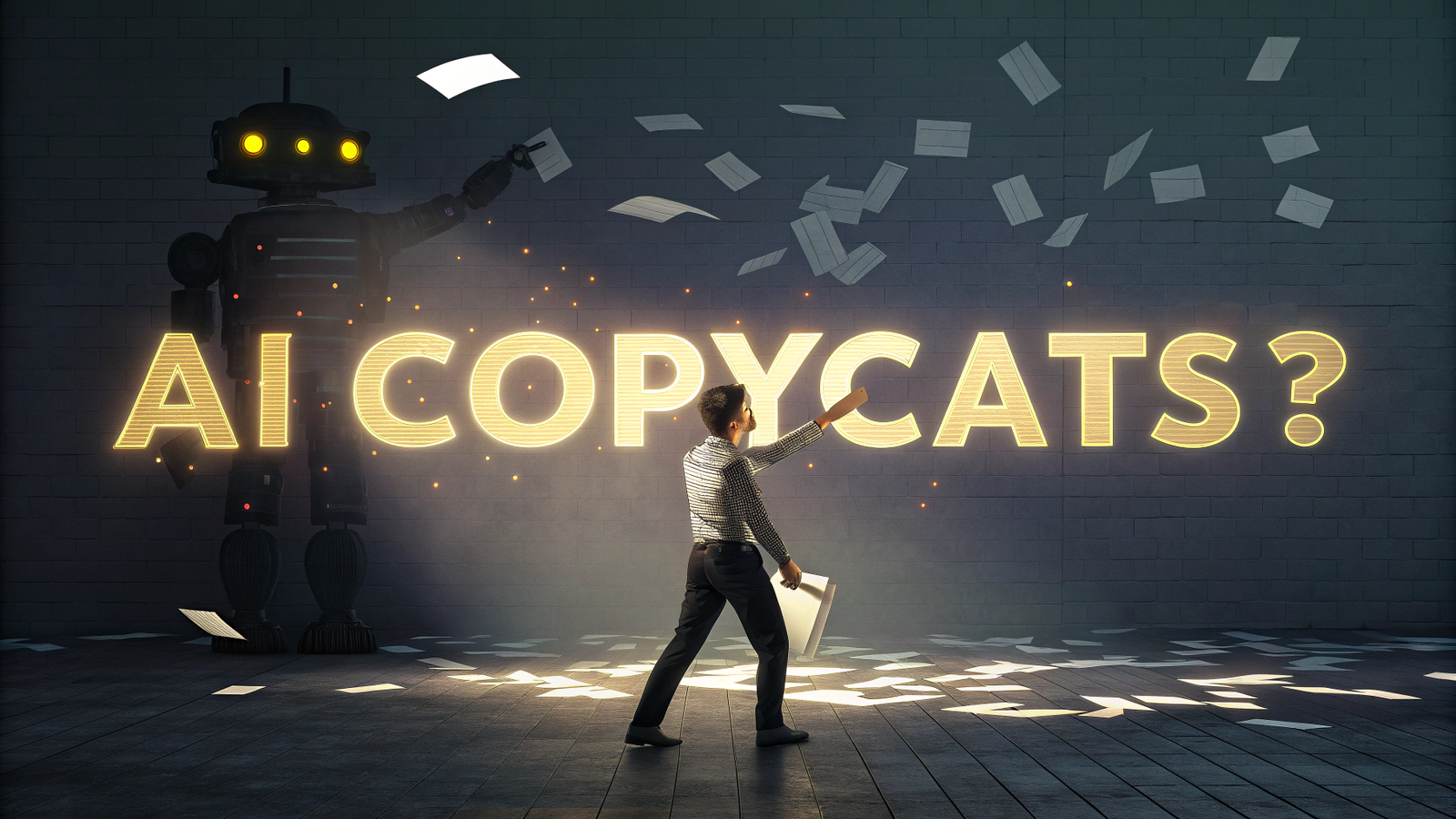Smart ways to safeguard content, reviews, and reputation.
Worried about AI copying your content or reviews? Learn how to protect your small business online and defend your brand against misuse.
When a Dentist Meets His Doppelgänger
Jamal, our London dentist, got a strange message one morning: “Hi, I saw your clinic on another site. Why are your whitening prices different there?”
Confused, Jamal clicked the link. It wasn’t his site—it was a spam directory using AI to scrape his business content, even rewriting his reviews into misleading blurbs. One AI tool had confidently described his clinic as “cosmetic-only and closed Sundays”—two false statements that could cost him customers.
Welcome to the uneasy side of AI: if it eats your content and misrepresents you, how do you fight back?
Can AI Scrape My Website Without Permission?
Sub-Questions tackled:
- Can AI scrape my website info without asking?
- Can I block it?
Yes, AI crawlers pull business data (menus, FAQs, blog posts) to train models. This happens at massive scale.
Tools like ChatGPT & Perplexity admit they crawl publicly available web info.
✅ Control step: Use robots.txt exclusions. Google provides robot management to block certain AI bots (not foolproof, but effective against many).
⚠ Limitation: determined scrapers may ignore robots.txt.
Do AI Systems Reuse Reviews Without Context?
Sub-Questions tackled:
- Do AI summaries include customer reviews raw?
- What if tone/context gets lost?
AI frequently pulls reviews into summaries—often excerpted without nuance. A slightly sarcastic 5-star review saying “Oh sure, best service ever 🙄” could confuse LLMs.
✅ Solution: respond to reviews publicly. AI tends to include your reply if available. According to BrightLocal’s 2023 Review Survey, 88% of consumers trust businesses that respond to reviews.
Maria’s café avoids misquotes because her replies clarify tone: “Thanks for your humor, we’re glad you truly loved the muffins!”
Can I Claim Ownership of My Brand in AI Summaries?
Sub-Questions tackled:
- How do I assert brand accuracy?
- Can I influence AI descriptions?
Most AI search platforms (Google AI Overviews, Bing Chat) allow business owners to report inaccurate summaries. Google explicitly allows small businesses to provide corrections inside Business Profile manager.
✅ Proactive step: fill your Business Profile with complete descriptions; AI prefers official content over third-party noise.
What if AI Misquotes My Prices or Services?
Sub-Questions tackled:
- How can I fix false info like wrong pricing?
- How fast can I correct AI summaries?
Bad info can spread fast. Solution = update originals instantly. AI tools update from:
- Google Business
- Yelp/TripAdvisor
- Schema on your website
Google’s support page confirms that correcting info in your profile is the fastest update route.
Can AI Clone My Logo, Menu, or Design?
Sub-Questions tackled:
- Can AI recreate my visual assets?
- Should I trademark them?
Yes—AI design tools can mimic logos or menu styles easily. Protection route:
- Trademark logos + slogans in your region (USPTO or local IP registries).
- Use watermarks on images (subtle branding).
- Upload visuals to your Google/MyBusiness listing—AI then treats them as official.
Case: Asha watermarked her yoga flyers after an imposter account used AI copies to attract clients.
How Do I Monitor Where My Business Appears?
Sub-Questions tackled:
- Can I track if AI or sites misuse my name?
- What tools can help?
Tools:
- Google Alerts (free) – watch for business name mentions.
- Mention.com, Brand24 – monitor across wider platforms.
- AI-specific alerts (e.g., Perplexity allows reporting).
Pro tip: Search your brand name inside ChatGPT/Bing Chat once a month to spot distortions.
Should I Trademark Content Too?
Sub-Questions tackled:
- Is legal protection worth it?
- What are the best safeguards?
Yes. Trademark = real protection in disputes. For clinics/cafés: trademarks cover name, logo. For creative professionals: copyright content.
Case: Ravi’s pizza recipes blog got lifted into an AI cooking site. His DMCA notice was honored because his text was copyrighted. Legal fallback matters.
Practical Checklist to Protect Your Business from AI Misuse
- ✅ Use robots.txt to limit scrapers.
- ✅ Keep Google Business profile complete & fresh.
- ✅ Respond to every review (adds context AI can’t misread).
- ✅ Monitor with Google Alerts + brand monitoring tools.
- ✅ Trademark your logos, slogans.
- ✅ Watermark photos/menus.
- ✅ Correct AI misinformation through platform feedback.
- ✅ Copyright long-form unique content.
Conclusion
AI isn’t malicious—it’s hungry. If you don’t feed it with accurate, official data, it may chew old crumbs or someone else’s knockoffs.
For Jamal, what felt like a cloned doppelgänger was fixed by asserting control: refreshing his listings, responding to reviews, and trademarking his branding. For Maria and Asha, adding watermarks, reviews, and schema kept their story authentic, not distorted.
👉 Your takeaway: Don’t wait until misinformation costs you customers. Protect today: manage your online presence, claim your brand, and stay one step ahead of AI’s blind spots.


